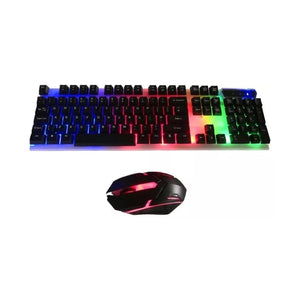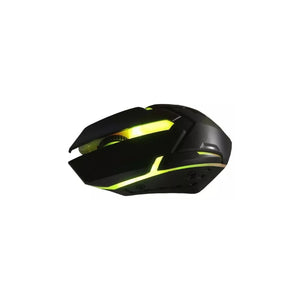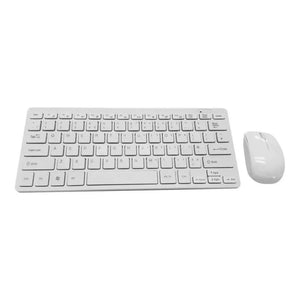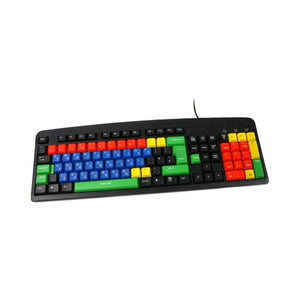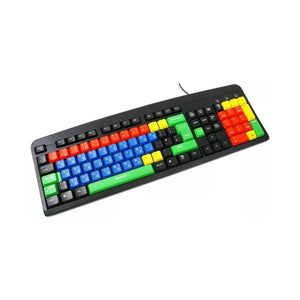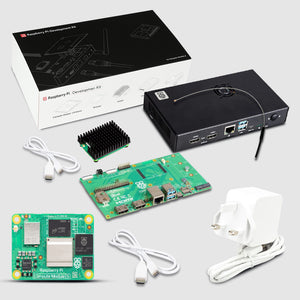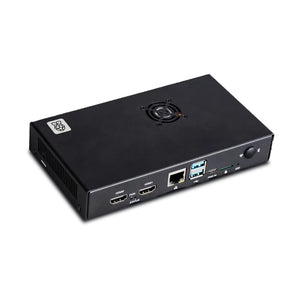The servo driver HAT is a PWM based expansion board designed for Raspberry Pi. The PCA9685 chip expands up to 16 channels and supports 12-bits resolution for each channel. It uses the I2C protocol for communication purposes.
The PCA9685 provides 16 more pins that can be used as PWM output.
A Tour Of The Board
On the Board
Voltage Regulator - It regulates the onboard supply to the desired voltage.
- The board has a 5V regulator having a 3A output current that can be powered from the battery through the VIN terminal.
- There is one more regulator that converts the 5V to 3.3V
PCA9685 - It is a PWM driver that works on the I2C protocol. It provides the 16 channels for controlling purposes.
Headers and Connectors - to connect the power supply, Pi and also the motors connectors and headers are provided.
Servo driver is an easily stackable Raspberry Pi Hat with dimensions of 65mm x 30mm. The servo driver gives access to all the GPIO pins as well as the ports to connect the servo motors.
GPIO Header - To give the user access to all the GPIO pins of the Raspberry Pi a 40 pin header is mounted on it.
Two 5V and two 3V3 are there along with the ground(0V) pins. Leftover is the general-purpose pins. Some of the GPIO pins have special functions mentioned below:
PWM -
- Software PWM available on all pins
- Hardware PWM available on GPIO12, GPIO13, GPIO18, GPIO19
For serial communications -
SPI:
- SPI0: MOSI (GPIO10); MISO (GPIO9); SCLK (GPIO11); CE0 (GPIO8), CE1 (GPIO7)
- SPI1: MOSI (GPIO20); MISO (GPIO19); SCLK (GPIO21); CE0 (GPIO18); CE1 (GPIO17); CE2 (GPIO16)
I2C:
- Data: (GPIO2); Clock (GPIO3)
- EEPROM Data: (GPIO0); EEPROM Clock (GPIO1)
UART:
- TX (GPIO14); RX (GPIO15)
Servo Pins - 3 pin header with a group of 4 is mounted on the board. 16 channels are provided to connect 16 servo motors starting from channel 0 to channel 15 as shown in the figure.
Power Connector - Input power supply connector is provided to give supply to the HAT as well as the Raspberry Pi board. No external power supply is needed to power up the Pi.
The input voltage required is 6V to 12V.
Specifications
- Input voltage - 6V to 12V
- Servo driving voltage - 5V
- Logic voltage - 3.3 V
- Communication Protocol - I2C
- Dimensions - 65mm x 30mm
Applications
It is mainly used in robots where lots of movable parts are there and you need to control it. It is easy to stack and also easy to use.16 channels are there to control 16 motors making it more useful.
GitHub: http://bit.ly/3ctvYiH


